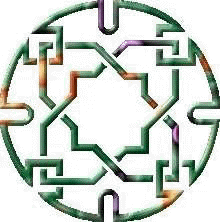




Today's Zaman
ALİ BULAÇ
Today's Zaman
December, 29, 2009
| Society, which is said to be disintegrating in postmodern times, is a new fact and a modern phenomenon. There was no “society” in pre-modern times. Society was produced by 19th century modern social sciences and sociology. It is a synthetic and fictional production. | |
This kind of word does not exist in earlier Western or Eastern literature. We cannot find a word that is equivalent to the word “society” in the Quran. There are words that mean clan, tribe, nation and public, but there is no word for society. The unification of clans leads to a tribe and the unification of tribes leads to the formation of a nation. Clans, tribes and nations are an assembly of people who have ties of blood, kinship and geographic unity. The unification of nations leads to the formation of a general public, but not in the modern sense. Then there is the Islamic term “ummah,” which is above all else and focuses on religious and political unity. There is no such thing as society, but there is a community. In the 19th century, German sociologist Ferdinand Tönnies conducted an analysis based on German society and said the modern world was shifting from communities to societies. But he made another very interesting claim. He said that after a certain point, society would divide and dissolve and there would be a return to community life. The phenomenon we call globalization today is unraveling the modern concept of society. Modernity disconnected people from traditional and natural structures that they were connected to. It disconnected them from the family, the community, the Turkish-Islamic guild, the religious order, the dervish lodge, the church and everything else that can be considered traditional. Let’s consider the units of an apartment. Each one has its own life, philosophy, worldview, location and lifestyle. But you come, destroy the units, build one single home and label those who live in that home a “society.” Society is a melting pot. It is this society that is unraveling in every part of the world, from the West to the East. Francis Fukuyama says the West possesses very strong scientific, technological and military power, but it does not have the capital to hold people together and places helping each other out, good relations with neighbors, respect for parents and everything considered spiritual and traditional in the category called “social capital.” Currently modernity cannot keep people together vertically. When we look at activity throughout the world, we see that human movement from the south to the north, from the east to the west, from poor countries to rich countries continues. Each year, millions of people attempt to go to the West. Of course there are a series of reasons that trigger this move. Several factors such as poverty, wars, oppressive regimes and ecological reasons can be listed. In every part of the world, and especially in the Muslim world, there is a similar kind of social mobility, in other words emigration toward big cities. In the 1940s, 15 percent of Turkey’s population lived in cities while 85 percent lived in rural areas or villages. These figures reversed, and the urban population is now 70 percent of the country. As people move from their current position to certain centers, a major disintegration takes place. The main impetus for this is what many describe as a “subjectless and ambiguous” process called globalization. It is unknown who assigns and directs globalization. Is it states, governments, lobbies, multinational companies, oil companies, weapons dealers, scholars or the Internet? No one actually knows. Maybe it’s all of them, together, and they are playing a role in this process one way or another. As globalization continues to make its presence and influence felt, all traditional structures unravel. By traditional we mean modern traditional structure. All earlier traditional structures were unraveled by the modern structure. For example, nation-states unraveled communities and religious orders and made them ready for globalization. The family could have resisted globalization, but the nation-state weakened the family as well. Moreover, the nation-state weakened the society itself. In traditional societies, there were safety nets between the people and the state. These were mechanisms that protected people against the state and the ruling political power. But the nation-state disrupted these mechanism and left people alone and defenseless. |
Back to Globalization Discourse List